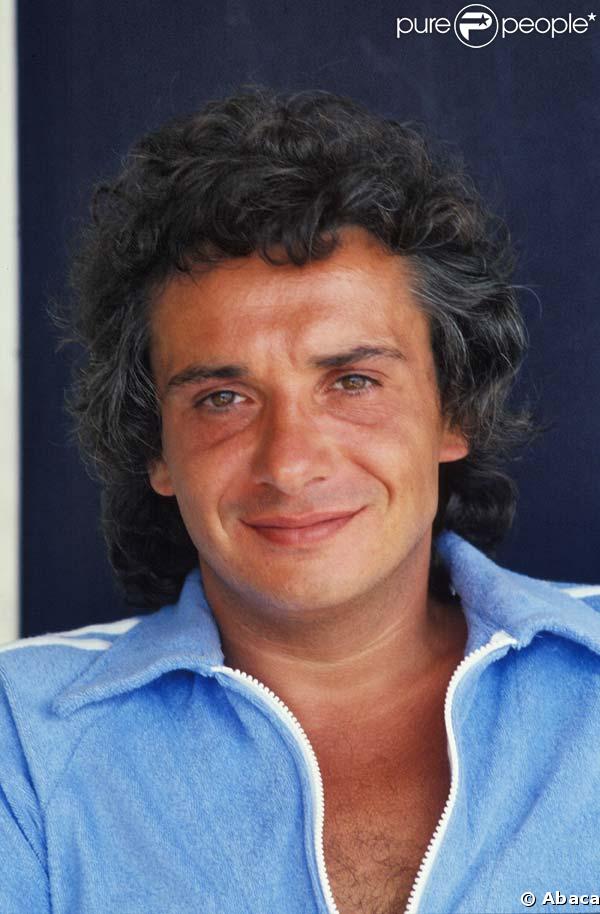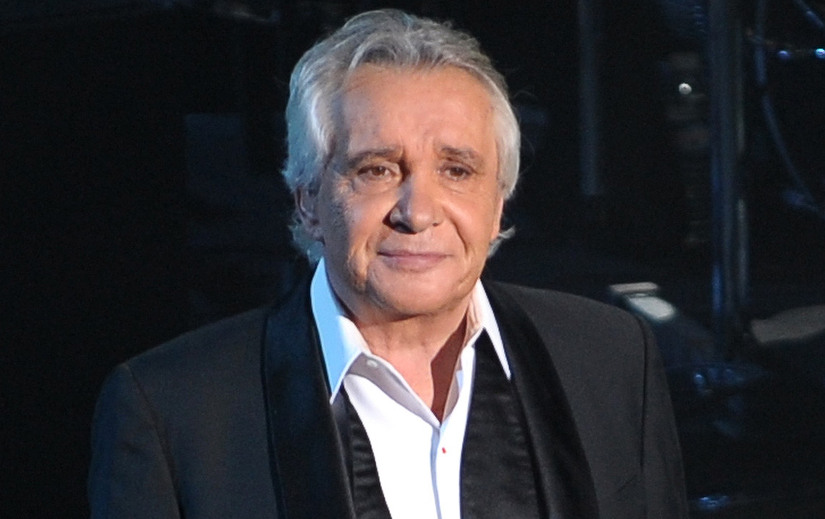Contents
Michel Sardou Net Worth
How rich is Michel Sardou? For this question we spent 15 hours on research (Wikipedia, Youtube, we read books in libraries, etc) to review the post.
The main source of income: Actors
Total Net Worth at the moment 2024 year – is about $180,3 Million.
Youtube
Biography
Michel Sardou information Birth date: January 26, 1947 Birth place: Paris, France Profession:Actor, Soundtrack
Height, Weight:
How tall is Michel Sardou – 1,78m.
How much weight is Michel Sardou – 61kg
Photos




Wiki
Biography,ChildhoodHe is the heir to a long family tradition of show-business. Indeed, his paternal grandparents were comic actors in Marseille and his grandmother was a dancer. When he was a child, he spent the most of his time in cabaret or on tour with his parents.His education was not brilliant and he carried out a life behind the scene and in theatres, so he decided to stop his studies. In 1964, at the age of 17, he planned running away to Brazil to open a striptease club. His father caught him at the airport. Then Sardou announced to him his desire to work and to leave school. While he was a waiter in his fathers cabaret, he was earning his spurs on stage, he met Michel Fugain and had an audition for Eddie Barclay.CareerThe early stages (1965–1970)In 1965, Sardou began his recording career with Le Madras, co-written with Michel Fugain and Patrice Laffont. Thanks to this song, he made his first television appearance, but its follow-ups met with no commercial success. andIn 1967, his career really picked up, thanks to censorship: while France left NATOs military command and the Vietnam War was causing anti-American sentiment in France, Sardou released Les Ricains (The Yanks), a song which stated the debt of gratitude towards the USA for the liberation of France. Charles de Gaulle did not like the song and he advised against its broadcast on state radio and television. This gave the singer a new notoriety, and the song let him lay the foundations for his future artistic style. However, from 1967 to 1970, he still found it difflcult to have big hits.In view of the mitigated success of his singles, in 1969, Eddie Barclay decided to terminate his contract, estimating that Sardou was not cut out to be a singer. So, he founded the record label Trema (which stands for Talar Revaux Editions Musicales Associees), which would produce his records, with his friends Jacques Revaux (who will become his most loyal composer) and Regis Talar, a French record producer.Success and controversies (1970–1980)He really met true success in 1970, when he released his first studio album, Jhabite en France. Three songs extracted from this work became hits : Jhabite en France (I live in France), Et mourir de plaisir (To die of pleasure) but mainly Les Bals populaires (Popular Dances), which reached the top of the French chart.From this album, the hits would be uninterrupted throughout the 1970s. The songs Le Rire du sergent (The Sergeants Laugh) (1971), Le Surveillant general (The Superintendent) (1972) found favour with the public. But his success was sealed in 1973 with the album La Maladie damour. Its title track La Maladie damour (The Disease of Love), Les Vieux maries (which translates as The old married couple, but adapted in English under the title Its not too late to start again) and Les Villes de solitude (The Cities of loneliness) would eventually become great successes. However, this last song triggered a controversy as Sardou takes the role of a man who, tired of his monotonous daily routine, drunkenly expresses his brutal fantasies (of robbing a bank and raping women), but never acts on them. The feminist organisation MLF] objected.The controversies reached their peak in 1976, with the album La Vieille (The Old Woman). The first single from it, Le France (SS France), released on November 1975, was a message of indignation addressed to the President of France Valery Giscard dEstaing, who had just sold the ocean liner SS France. The controversial song was welcomed by the trade unions and the Communist Party even though Sardou was seen, because of several other songs, as an archetypal reactionary singer. Even after the album was a real triumph (more than a million copies sold), other extracts, like Jaccuse (I charge men of…) or Le Temps des colonies (The Days of Empire) are about a singer who defends old conservative values. He was even accused of being a racist and an apologist for colonialism, but he has always insisted that the song is written in character rather than being an expression of his own views. The song Je suis pour… (I am in favour of …) puts Sardou in the role of a man in favour of the death penalty because his own son has been killed. In the wake of this, and other political positions expressed by him, Anti-Sardou campaigns were started, their demonstrations regularly disrupted the singers tours, although other left-wingers felt that Sardou was entitled to his freedom of speech.The next year, in 1977, Sardou moved away from politics. His next album, La Java de Broadway, contained famous songs, such as La Java de Broadway (The Java of Broadway), Dix ans plus tot (Ten years earlier) and a revival of the Claude Francois hit Comme dhabitude (the tune of which is best known to English-speaking audiences as My Way). The album was a huge success, exactly like the next Je vole (1978), which gave him one of his biggest hits, En chantant (Singing), written together with the Italian singer Toto Cutugno.At the end of the 1970s, Sardou was one of the biggest stars in France, alongside Johnny Hallyday, Sylvie Vartan and Serge Lama.A legend in motion (1981–2001)The 1980s began under good omens for the singer, with the album Les Lacs du Connemara from which came two songs considered important to the entire canon of French popular music: Les Lacs du Connemara (The Lakes of Connemara) and Etre une femme (Being a woman).Throughout the decade, Sardou had a lot of success : Afrique adieu (Farewell, Africa) in 1982, Il etait la (He was here) in 1982, Rouge (Red) in 1984, Chanteur de jazz (Jazz Singer) in 1985, La meme eau qui coule (The same water flowing) in 1988…[citation needed] because his sales did not slow down, whereas a lot of his contemporaries had been forgotten during the disco boom.However he didnt shy away from controversial songs, and even had success with several of them : Vladimir Ilitch, in 1983, which both pays tribute to the ideas of Lenin and denounces the drift of the Soviet Union away from them, Les Deux ecoles (The Two Schools), in 1984, which recalls the opposition between the free school and the private school with a defence of private schools , Musulmanes (Muslim women), in 1986, which casts a pessimistic and bitter look at the rights of women in Islamic countries but which also pays a tribute to Arabic culture.At the end of the 1980s, Sardou received the recognition of his peers by being awarded a Music Victory for Musulmanes as the best song of the year.In the 1990s, the run of hit singles dried up, even if his four albums had very good sales. Sardou chose, for his shows in Paris, at the Palais Omnisports de Paris-Bercy in 1989, 1991, 1993, 1998 and 2001, and managed to fill this small stadium for a total of 88 times after his tour in 2001, each time with more than 17,000 spectators. He also holds the record of attendances and performances for this stadium.He received, in 1990 and in 1999, the Music Victory for the biggest number of spectators gathered at the end of a tour (in 1998, nearly 580,000 people have come to see him on stage.)After the album Francais (2001) and its promotional tour, Sardou announced his retirement from singing.The renewal (2004–2013)Michel Sardou at the Palais des Sports in 2005.Sardou left the music scene to devote himself to acting and to his Theatre de la Porte Saint-Martin.But Sardou also proved that he had not given up his singer career. In 2004 he signed a contract with the record label Universal Music France for a new album entitled Du plaisir, he participated in the French television show Star Academy and he organised an international tour in 2004 and 2005, visiting France, Belgium, Switzerland and Canada.On 13 November 2006, the double album Hors Format was released. This album includes twenty-three new songs, one of which is a duet with Chimene Badi, Le Chant des hommes (The Song of Men). Hors Format has reached 400,000 copies sold and is a double platinum. In 2007, he started another tour, visiting venues like the Olympia and the Zenith de Paris.He released the album Etre une femme (2010) on 30 August 2010. Tracks include a electronic style remix by the DJ Laurent Wolf of his own 1980s hit Etre une femme, and a duet with Celine Dion, Voler (To Fly). The subsequent tour meets with further success.Les Grands moments (The Great Moments), a compilation album of his greatest hits, was released 22 October 2012. In 2012 and 2013 Sardou gave a show of the same name, showcasing his material all the way back to the mid-1960s. The show was staged at the Palais Omnisports de Paris-Bercy for three dates in December 2012 and five dates at the Olympia in June 2013. But medical issues forced Sardou to cancel the twelve last dates.In September 2014, he began playing the lead role in a play written especially for him by Eric-Emmanuel Schmitt, Si on recommencait ? (If we begin again ?).Several of Sardous songs also feature prominently in the French comedy film La Famille Belier, released in 2014.Personal lifeSardou married Francoise Pettre, a dancer, in 1965. They have two daughters : Sandrine (born on 15 January 1970) and Cynthia (born on 4 December 1973). They divorced in 1977.He married his second wife, Elizabeth Haas, called Babette, in October 1977. They have two sons : Romain, writer (born on 6 January 1974) and Davy, actor (born on 1 June 1978). They divorced in June 1999.Most recently, he married Anne-Marie Perier, the daughter of the actor Francois Perier and the sister of the photographer Jean-Marie Perier, on 11 October 1999. She is the former editor-in-chief of Elle magazine. They were married in Neuilly-sur-Seine by the former mayor Nicolas Sarkozy (a great friend of Michel Sardou) who is also the former President of France (2007–2012).
Summary
Wikipedia Source: Michel Sardou